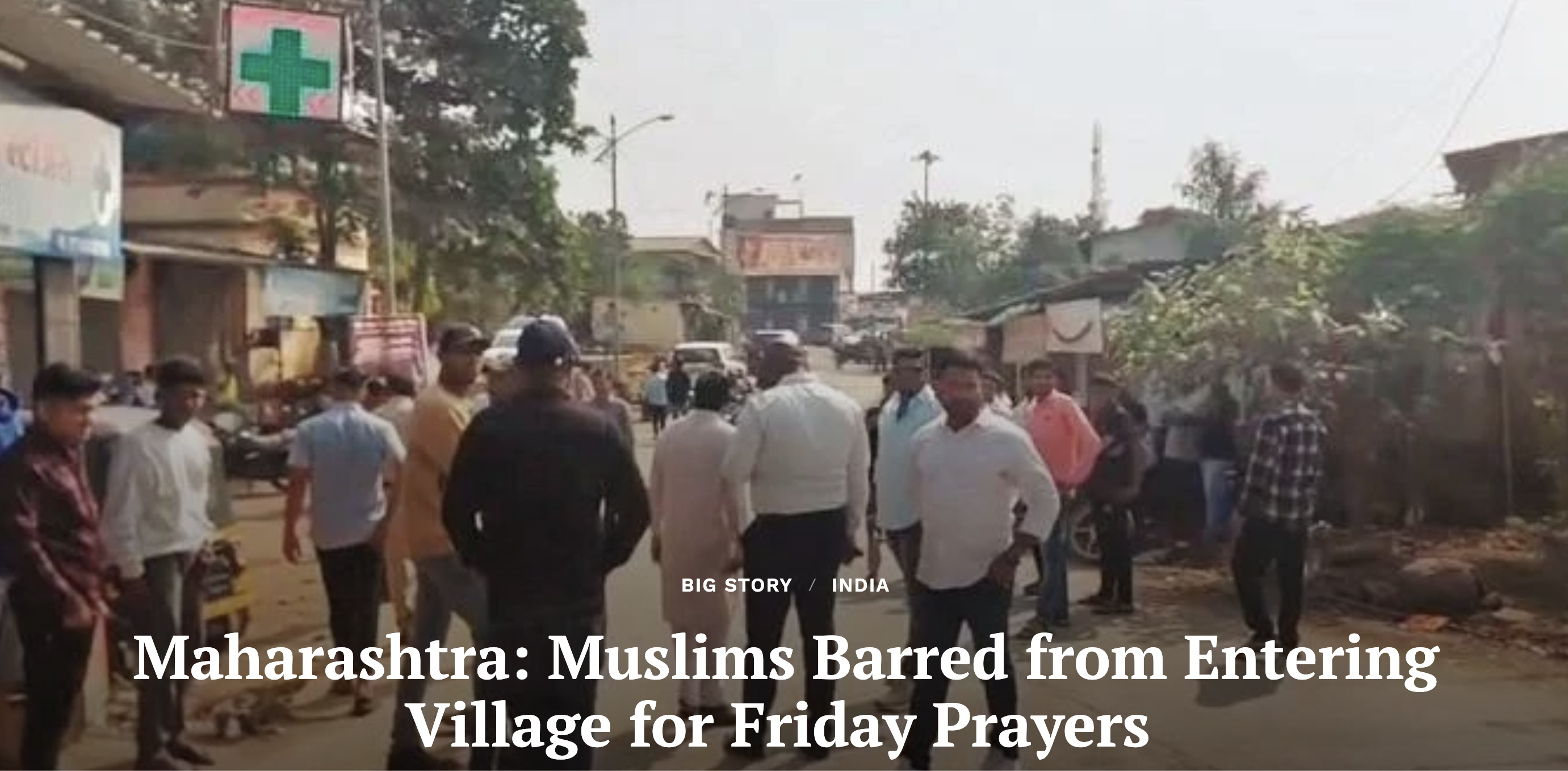
MUMBAI – A distressing episode unfolded in Dombivli’s Khoni village in Maharashtra’s Thane District where residents reportedly barred Muslims from entering the village to offer Friday prayers. The ban, defended by some villagers as a precautionary step following recent sexual assault cases in nearby areas like Badlapur and Kalyan, has sparked widespread criticism for its discriminatory nature and questionable legality.
Dombivli, a bustling suburban area located on the banks of the Ulhas River, forms part of the Mumbai Metropolitan Region. Known for its prominence as a transport hub, the area is also home to a diverse population. According to the 2011 census, 6.76% of Kalyan-Dombivli’s residents are identified as Muslim.
Eyewitness accounts reveal that roads leading to the mosque were blocked by large crowds, preventing Muslims from Pallava, Dahisar Mori, and Shel Phata from reaching their place of worship. Disturbingly, the demonstrations reportedly occurred in the presence of Manpada police officers, who allegedly stood by without intervening, raising concerns about their role in upholding law and order.
Hanuman Thombre, a Shiv Sena (Shinde faction) leader and protest organiser, justified the blockade, stating, “Incidents of sexual assault in surrounding areas have alarmed us, and we’ve decided to restrict outsiders.” However, his remarks targeted Muslims specifically, as he alleged concerns over “Bangladeshis and Nigerians” in the area. These comments, widely perceived as inflammatory, have prompted allegations of communal profiling and bias.
The ban has left local Muslims outraged and disheartened. Shabir Ansari, a resident of Pallava, expressed his frustration: “We come here to pray peacefully. Why should we be collectively punished for crimes we have no connection to? This is blatant discrimination.”
Yasmeen Sheikh, another worshipper, said, “Blocking access to a mosque is not just unconstitutional; it is an attack on our dignity and religious freedom.”
Legal experts and activists have strongly condemned the incident. Advocate Nida Khan termed the ban “an illegal and communal act,” adding, “India is a secular nation, and such actions violate the fundamental rights guaranteed under the Constitution.”
This story was originally published in clarionindia.net. Read the full story here.

